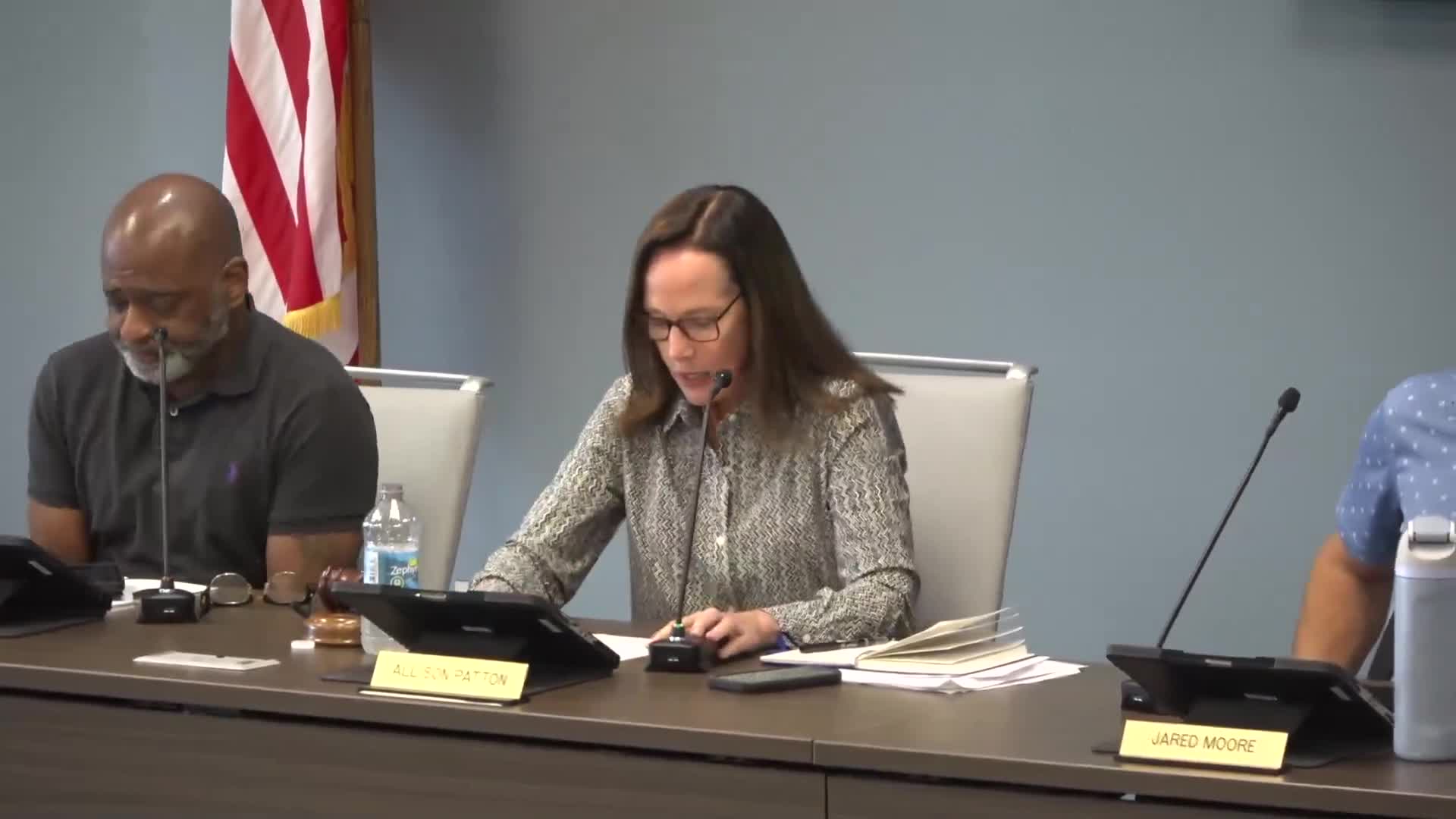Pensacola council holds workshop on proposed parking ordinance changes, including 72-hour storage limit
Get AI-powered insights, summaries, and transcripts
Subscribe
Summary
Pensacola City Council held a workshop Oct. 20 to discuss proposed amendments to city code section 11-2-24 that would change how long vehicles may remain parked on city rights-of-way and clarify enforcement and towing procedures.
Pensacola City Council held a workshop Oct. 20 to discuss proposed amendments to city code section 11-2-24 that would change how long vehicles may remain parked on city rights-of-way and clarify enforcement and towing procedures.
Council Vice President Patton opened the discussion, saying, “So the workshop today is to discuss a proposed, or some changes I should say, to our ordinance relating to parking in areas of the city.” The draft discussed by council and staff would set a 72-hour limit citywide on vehicles stored in the public right-of-way and a 24-hour limit in a defined downtown area intended to preserve turnover where on-street parking is most in demand.
The change responds to repeated neighborhood complaints about long-term parked or apparently abandoned vehicles and to downtown parking turnover concerns. Council members asked for clarity on how the rules would work in practice, how resident permit-decals are issued, and who would carry out enforcement.
“Where do they get those decals?” Councilman Baer asked, seeking how residents obtain the limited resident-parking decals that currently exist. A staff member explained the decals are narrowly applied: “there's actually only 2 places that have this,” and they were established where houses historically were built without driveways and needed dedicated on-street spaces adjacent to their homes.
City staff and Jan Richardson, who worked on the ordinance draft, described how towing and post-tow notices operate under state law. Richardson said, “The tow company under Florida statute has access to all the information about the driver and the vehicle information. They will find out who the owner is, who the lienholder is, who the insurance company is, and they will send all the proper notices out and give them time to reply and, you know, pick up their car, before it will be considered abandoned and sold at an auction.” Staff said the city does not maintain its own pound, and private tow companies handle notices and auctioning when required.
Council members and staff discussed enforcement mechanics in detail. Under the draft timeline discussed by staff, a vehicle that meets criteria for storage (not merely parked overnight) would be digitally marked by parking staff and receive a first ticket after 72 hours. If the vehicle remained, additional tickets would be issued; staff described a working practice in the draft that would trigger a bright notice on the vehicle after several unpaid tickets and provide an additional multi-day window before towing could occur. In that sequence staff described, “If they get to where there's 5 outstanding tickets... at that point... we placed a notice on the car... if you don't move it within 5 days, it's subject to being towed.”
Several council members urged that the ordinance include objective criteria and an internal policy to guide enforcement officers so that a vehicle is not ticketed simply for being parked more than the stated time without other indicators of storage. One council member summarized the intent: staff said the draft requires “2 or more of the following objective criteria” be met before treating a vehicle as stored rather than temporarily parked.
The draft also addresses downtown needs. Council members and staff debated how to define the downtown boundary for the 24-hour rule and discussed using an existing zone—such as the parking benefits district or downtown improvement district—rather than drawing new boundaries. Staff said defining that area would be a follow-up task.
Other items discussed included commercial and recreational vehicle rules in residential areas, possible supplemental signage for problem lots (for example, the Bayou [Tahar] boat-ramp parking area), and how the city will implement an increased ticket-payment period. Parking administration staff noted an operational constraint: changing the payment deadline printed on citation forms requires ordering new citations and updating back-office software, which they estimated would take on the order of 90–120 days before changes could be enforced in the field.
No formal vote or ordinance adoption occurred at the workshop. Council members generally expressed support for bringing a revised ordinance back for formal consideration once staff refines the downtown boundary, finalizes enforcement criteria and guidance for parking staff, and updates implementation timelines.
The city attorney’s office and parking staff will continue drafting the ordinance language and an enforcement policy; staff also noted upcoming operational steps such as ordering revised citation forms and updating software before a final effective date.
